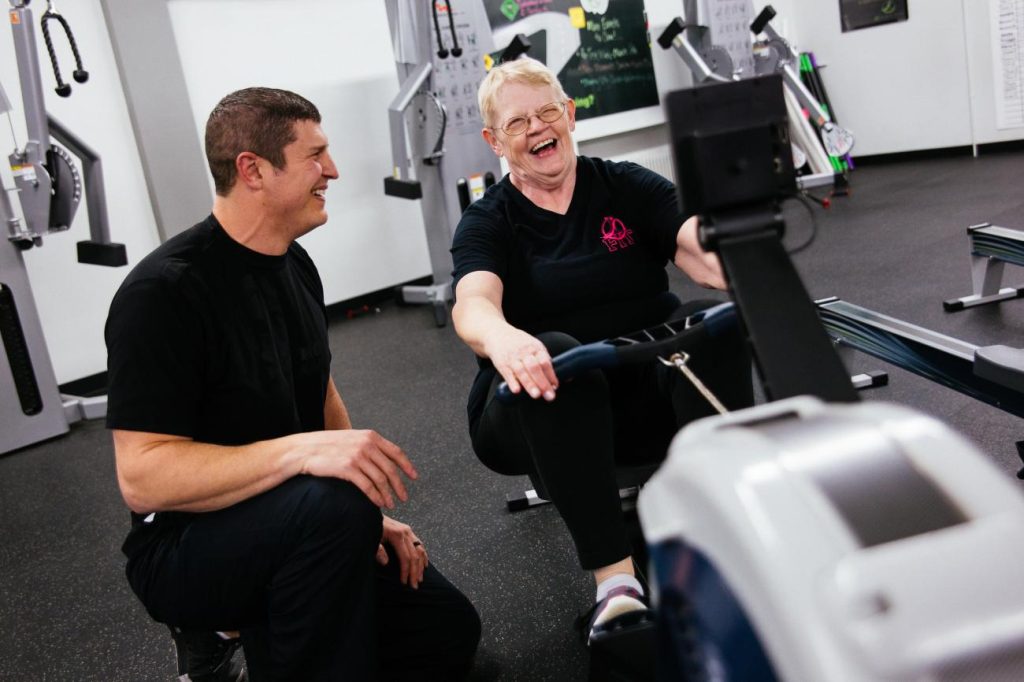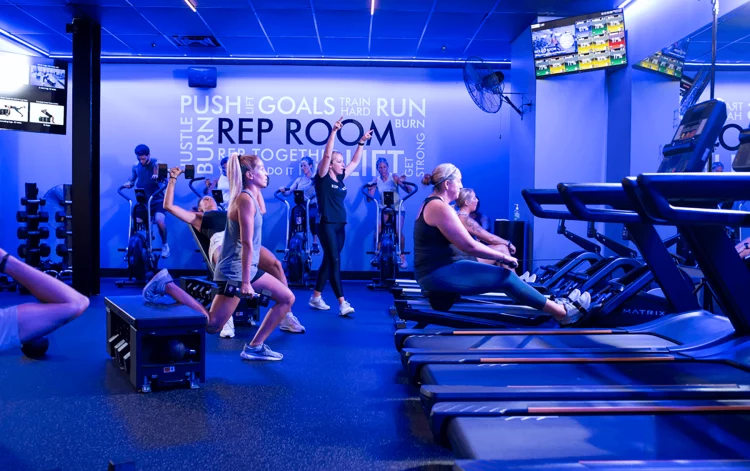In recent years, local fitness challenges have grown from casual weekend activities to powerful agents of change, reshaping communities from the inside out. These grassroots workout initiatives—ranging from community runs and park boot camps to yoga flash mobs and neighborhood step-count contests—have sparked a movement that transcends exercise. They are creating spaces where people connect, support one another, and collectively strive for healthier lifestyles. With minimal equipment, low cost, and high energy, these challenges are fostering a sense of ownership and wellness culture in neighborhoods of all sizes. But how exactly are these local events transforming community health, and why are they gaining so much momentum now?
The Rise of Grassroots Fitness Movements
The movement toward community-driven fitness didn’t happen overnight. It evolved from the realization that traditional gyms, expensive memberships, and solo workouts often create barriers to participation, especially in underserved or marginalized communities. In contrast, local fitness challenges offer something different—accessibility, inclusivity, and a sense of fun. No longer confined to athletes or fitness enthusiasts, these grassroots efforts appeal to everyone from teens to seniors, from first-timers to seasoned marathoners. Social media has played a crucial role in this transformation. Platforms like Instagram, Facebook, and even neighborhood WhatsApp groups now act as hubs for organizing events, sharing success stories, and encouraging participation. This digital connectivity has given grassroots fitness challenges a global reach while preserving their hyperlocal charm.
Community Runs: Simple Steps Toward a Healthier Neighborhood
One of the most popular forms of local fitness challenges is the community run. Whether it’s a weekly 5K, a family-friendly fun run, or a charity race, these events encourage residents to come together, lace up, and move. What makes them so effective is their simplicity—little more than a set route, a few volunteers, and the motivation to get going. Yet the impact is profound. Community runs promote cardiovascular health, reduce sedentary lifestyles, and provide an opportunity to explore local neighborhoods in a new light. They often double as social gatherings, with participants sharing tips, cheering each other on, and celebrating small victories. In some neighborhoods, these runs have evolved into rituals, with entire families and groups of friends participating week after week.
Park Boot Camps: Fitness Without the Fuss
For those craving variety and intensity, park boot camps have become a go-to option. These group workouts—usually led by volunteer trainers or fitness enthusiasts—make use of public spaces and minimal equipment to deliver dynamic sessions that include strength training, cardio, agility drills, and stretching. They are cost-free, adaptable to different fitness levels, and often set in green spaces that boost mental well-being. The group dynamic fosters accountability and camaraderie, creating a micro-community within the broader neighborhood. Park boot camps have become especially popular among working adults looking to squeeze in a workout before or after office hours. With no mirrors, no machines, and no pressure to perform, participants often feel more comfortable and motivated to stay consistent.
Yoga Flash Mobs and the Joy of Unexpected Wellness
Injecting an element of surprise into fitness, yoga flash mobs bring mindfulness and flexibility to unexpected places. Picture this: a quiet plaza or urban park suddenly fills with yoga mats and a meditative soundtrack, as residents come together for a spontaneous session. These pop-up events are often organized via social media or text alerts and are designed to make wellness accessible and fun. Yoga flash mobs draw attention to the importance of mental health, stress reduction, and mindfulness in the broader conversation around physical fitness. They also attract passersby who might never have tried yoga, inviting them into a low-pressure environment to stretch, breathe, and connect. More than just workouts, these gatherings are symbolic acts—reclaiming public space for peace and well-being.
Why Local Fitness Challenges Work
The effectiveness of these community fitness challenges lies in their ability to lower the barriers to entry. They don’t require fancy gear, personal trainers, or pristine indoor facilities. Instead, they rely on three powerful motivators: accessibility, social connection, and local pride. Accessibility ensures that anyone—regardless of age, ability, or economic status—can participate. Social connection builds trust and motivation, turning exercise into a shared journey rather than a solo grind. Local pride, meanwhile, inspires people to take care of their surroundings, clean up parks, and encourage neighbors to join in. These events also generate a feedback loop: as participants feel healthier, they become more invested in maintaining wellness habits, which in turn strengthens the community’s overall health culture.
Case Study: From Sedentary to Strong in Suburban Dallas
Take the case of a suburban neighborhood in Dallas, where a small group of parents started a weekend walking challenge to combat their sedentary routines. What began as a casual meet-up quickly evolved into a structured challenge: walk five miles every weekend for eight weeks. Within months, the group had grown to include over 100 participants, including teenagers, seniors, and even local law enforcement. The challenge expanded to include nutrition workshops, kids’ activity days, and guest fitness coaches. According to a local health clinic, rates of reported obesity and hypertension dropped noticeably in the neighborhood over the year. The ripple effect was clear—residents felt better, spent more time outdoors, and even saw improvements in sleep and mental clarity.

Inclusivity as a Core Principle
A defining feature of these local initiatives is their focus on inclusivity. Fitness challenges are intentionally structured to accommodate different abilities and fitness levels. Many community events offer multiple tiers—for example, a light stretching circle for seniors, beginner-paced runs for newcomers, or seated yoga for individuals with mobility limitations. This inclusive approach reinforces the idea that wellness belongs to everyone, not just the able-bodied or physically fit. In multicultural neighborhoods, some challenges even incorporate cultural elements—such as Latin dance cardio, African drumming warm-ups, or Bollywood-inspired fitness classes—bringing people together through movement and celebration. By removing exclusivity and embracing diversity, these initiatives foster not only better health but also stronger community bonds.
The Mental Health Connection
Physical fitness is only one part of the wellness equation. Mental health—often stigmatized or overlooked—has come into sharper focus thanks to these challenges. Exercise is a proven mood booster, and doing it in a community setting amplifies the benefits. People experiencing loneliness, anxiety, or depression find solace in the group dynamic, peer encouragement, and sense of belonging. In many cases, participants report that they joined for the workout but stayed for the support. Morning runs become therapy sessions, evening yoga turns into stress relief, and weekend hikes provide a mental reset. Community challenges also provide structure and routine, which are critical for those dealing with mental health issues. This holistic approach to wellness—body, mind, and spirit—makes these initiatives far more impactful than traditional fitness programs.
Technology as a Force Multiplier
While these are local events, technology has acted as a bridge, bringing organization and visibility to grassroots efforts. Mobile apps for tracking steps, progress dashboards, and digital leaderboards add an element of gamification, keeping participants engaged. Some neighborhoods use QR codes on community boards to register for events or scan fitness circuits in local parks. Facebook groups and Instagram hashtags help document progress and celebrate milestones. More advanced communities are exploring wearable tech integrations, encouraging participants to sync their fitness devices and compare stats in real time. This blend of analog charm and digital efficiency ensures that these challenges remain both grounded in the local and scalable for broader impact.
Support from Local Governments and Businesses
Municipal support has become another key factor in the success of community fitness challenges. Parks and recreation departments are increasingly partnering with local groups to provide equipment, marketing, and even small grants. City councils are sponsoring “Active Neighborhood” weeks, turning fitness into a civic celebration. Small businesses also benefit, with coffee shops offering discounts to sweaty post-run customers or yoga studios donating instructors for pop-up classes. This symbiosis creates a local wellness economy that benefits everyone—from increased foot traffic in parks to reduced healthcare costs. Importantly, government involvement often lends credibility and consistency to grassroots efforts, ensuring they become long-term fixtures rather than fleeting trends.
Challenges to Sustainability
Despite their popularity, sustaining these challenges over the long term can be difficult. Volunteer fatigue, seasonal weather, and inconsistent participation are common hurdles. Organizers must balance structure with flexibility, providing enough variety to keep things interesting without overwhelming resources. Safety is another concern—especially in larger urban areas where traffic, lighting, or uneven terrain could pose risks. Ensuring inclusivity also means addressing language barriers, transportation issues, and disabilities. Funding, too, can be a bottleneck. Many initiatives rely on donations or goodwill and may struggle without steady support. Still, the most successful programs are those that remain adaptable, tapping into the unique strengths and needs of their communities.
Looking Ahead: A Blueprint for Neighborhood Wellness
The future of community wellness lies in scalability and adaptability. What works in one neighborhood might need tweaking in another. The key is to develop flexible frameworks that can be customized—whether urban or rural, affluent or underserved. Toolkits for organizing local events, templates for social media campaigns, and partnerships with healthcare providers can amplify these efforts. Schools and universities can act as incubators, turning fitness challenges into intergenerational activities. Faith-based organizations, cultural centers, and tenant associations also offer fertile ground for collaboration. With the right support, these initiatives can evolve from small acts of motivation into lasting pillars of community wellness.
Conclusion: Movement as a Catalyst for Transformation
Local fitness challenges are more than sweat sessions in the park—they are catalysts for holistic neighborhood transformation. They bring movement to the streets, connection to the people, and a sense of ownership to everyday wellness. By making health accessible, social, and fun, they shift the culture from reactive to proactive, from isolated effort to collective impact. In an era where wellness often feels commercialized or exclusive, these grassroots movements are a reminder that sometimes the best solutions come from within the community. As more neighborhoods embrace the power of shared fitness, we’re not just building stronger bodies—we’re building stronger, more resilient communities.

















































